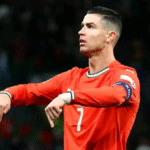Rangers Open to Middle Eastern Investment if it Aligns with Club’s Values, Says Expert
Rangers Football Club has shown openness to potential investment from the Middle East, but only if it aligns with the club’s long-term values and vision.
This is according to football finance expert Dan Plumley, who highlighted that while financial backing from the region could offer significant opportunities, the priority will always be what’s best for the club’s stability and future growth.
In recent years, Middle Eastern investors have shown an increasing interest in European football, with several clubs already enjoying substantial financial backing from the region.
Manchester City, Paris Saint-Germain (PSG), and Newcastle United are prominent examples of teams that have benefited from Middle Eastern ownership.
However, Plumley emphasized that the dynamics of each club are different, and Rangers will likely be cautious in its approach to any foreign investment.
“Rangers are a club steeped in tradition, with a large and passionate fan base, and any investment has to be the right fit,” Plumley explained. “While Middle Eastern investment could potentially offer substantial financial support, the club must ensure it maintains control over its identity and values.
The right kind of investment would be one that complements the existing structure and ambitions of Rangers, rather than being solely driven by financial gain.”
Rangers, like many top football clubs, have been exploring ways to grow their commercial revenues, improve infrastructure, and compete at the highest level in Europe.
The Scottish Premiership side has been on a resurgence since returning to the top tier, having secured the league title in 2021 under the guidance of Steven Gerrard, and regularly competing in European competitions.
However, with clubs across Europe continuing to raise the bar in terms of financial investment, Rangers may need to consider new sources of revenue to maintain their competitive edge.
For Middle Eastern investors, the potential opportunity to invest in a historic European club like Rangers is appealing.
With a global fan base, strong commercial potential, and a solid foundation, Rangers could represent an attractive proposition for those looking to diversify their sports portfolios.
Nevertheless, Plumley stressed that the motivations behind the investment would need to be carefully evaluated.
“It’s crucial that any external funding does not disrupt the club’s governance or operational model. Rangers are a club with a proud history and must preserve their ethos while welcoming investment.”
As Rangers continue to navigate the evolving landscape of modern football, the club’s leadership appears to be mindful of balancing financial opportunities with maintaining their storied legacy.
For now, any potential Middle Eastern investors will need to demonstrate their commitment to this delicate balance.








